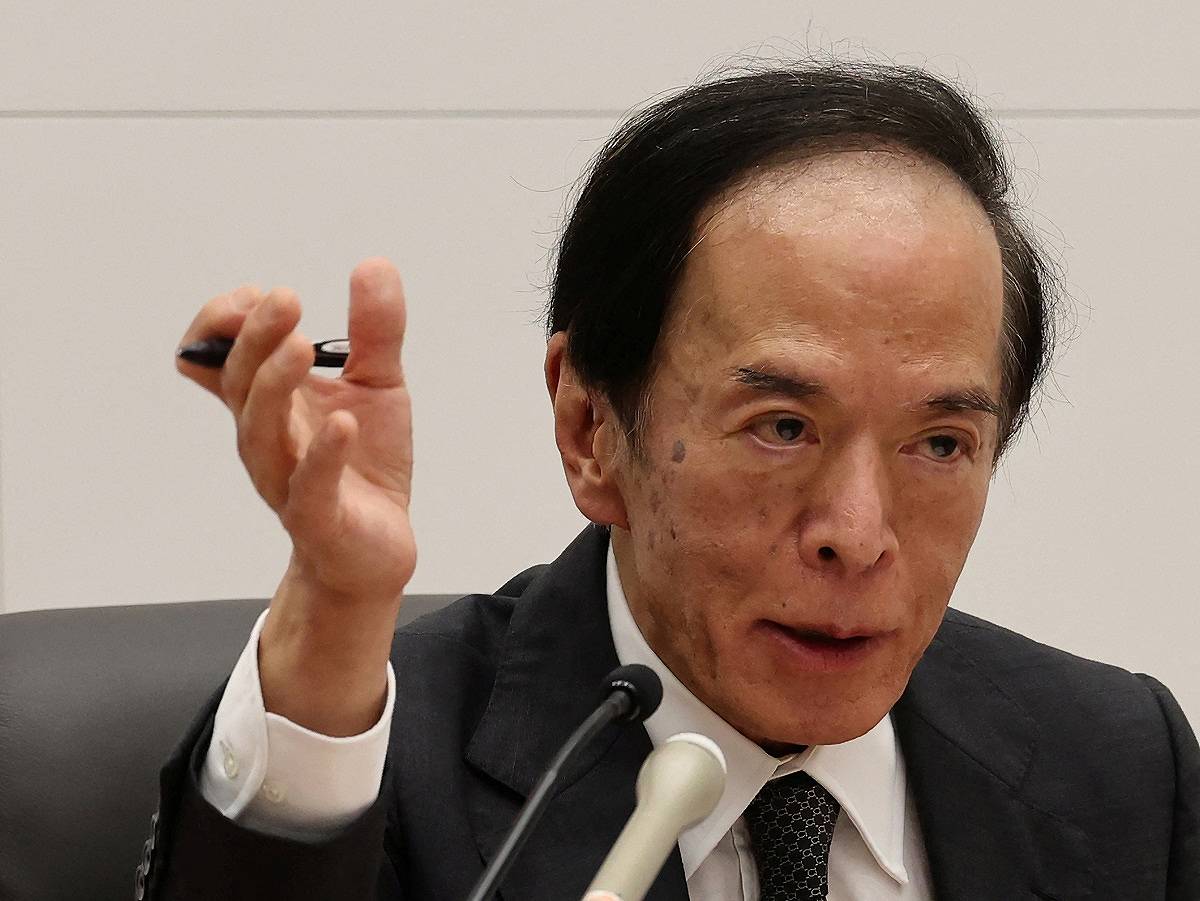
Bank of Japan Governor Kazuo Ueda attends a press conference after its policy meeting in Tokyo, Japan June 14, 2024.
11:17 JST, June 15, 2024
Tokyo, June 14 (Jiji Press) — Bank of Japan policymakers Friday voted to reduce the central bank’s purchase amount of Japanese government bonds as part of efforts to normalize its monetary policy.
The move is designed to “ensure that long-term interest rates will be formed more freely in financial markets,” the BOJ said in a statement after its two-day monetary policy meeting.
The BOJ’s board voted 8-1 to reduce the purchase amount. It will decide on a detailed plan for the reduction over the next one to two years at its next policy meeting in July, the BOJ said.
“We believe the reduction will be of a reasonable size,” BOJ Governor Kazuo Ueda told a press conference after Friday’s policy meeting.
The central bank currently buys government bonds at a monthly pace of some ¥6 trillion . It holds as much as about ¥600 trillion ‘s worth of government bonds as a result of its massive monetary easing policy launched in 2013.
Some have said that a reduction in the BOJ’s bond purchases would help stem a rapid depreciation of the yen by putting upward pressure on Japanese long-term interest rates.
The dollar climbed above ¥160 on April 29, three days after Ueda made remarks that were taken to indicate he was not serious about addressing a weak yen. The yen’s fall prompted Japanese monetary authorities to intervene in foreign exchange markets to support the currency.
In Tokyo currency trading on Friday, the dollar jumped above ¥158 after the BOJ did not present a detailed plan for the reduction in bond purchases. The yield on the benchmark 10-year government bond fell to a one-month low of 0.915 pct.
The BOJ’s board Friday voted unanimously to hold short-term interest rates steady in a range of zero to 0.1 pct.
Ueda told the day’s press conference that the yen’s recent rapid depreciation is a factor behind price increases and this will be closely watched by the BOJ. The governor also said that due to the weaker yen and other factors, “there are signs of a slight, renewed increase in import prices.”
At its March meeting, the BOJ ended its negative interest rate policy and raised rates for the first time in 17 years, starting its monetary policy normalization process.
Top Articles in Business
-

Prudential Life Insurance Plans to Fully Compensate for Damages Caused by Fraudulent Actions Without Waiting for Third-Party Committee Review
-

Narita Airport, Startup in Japan Demonstrate Machine to Compress Clothes for Tourists to Prevent People from Abandoning Suitcases
-

Japan, U.S. Name 3 Inaugural Investment Projects; Reached Agreement After Considerable Difficulty
-

Toyota Motor Group Firm to Sell Clean Energy Greenhouses for Strawberries
-

SoftBank Launches AI Service for Call Centers That Converts Harsh Customer Voices into Softer Voices
JN ACCESS RANKING
-

Japan PM Takaichi’s Cabinet Resigns en Masse
-

Japan Institute to Use Domestic Commercial Optical Lattice Clock to Set Japan Standard Time
-

Israeli Ambassador to Japan Speaks about Japan’s Role in the Reconstruction of Gaza
-

Man Infected with Measles Reportedly Dined at Restaurant in Tokyo Station
-

Videos Plagiarized, Reposted with False Subtitles Claiming ‘Ryukyu Belongs to China’; Anti-China False Information Also Posted in Japan





















